Six Penn Faculty Members: National Academy of Medicine
Six faculty members from the University of Pennsylvania have been elected to the National Academy of Medicine (NAM), one of the nation’s highest honors in biomedicine. They are among 90 US and 10 international new members elected by their peers for accomplishments and contributions to the advancement of the medical sciences, health care and public health. Seventy-eight Penn Medicine faculty are among this distinguished group. The new members are:
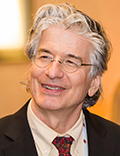 Charles S. Abrams is the Francis C. Wood Professor in Pathology and vice-chair for research and chief scientific officer in the department of medicine at PSOM. His research is focused on the contribution of phosphoinositide signaling on platelet activation, platelet disorders and megakaryopoiesis. He is also an active hematologist and specializes in the care of patients with platelet disorders and hemostatic and thrombotic disorders such immune thrombocytopenia and patients with venous thromboembolism. His research uses molecular and cellular biologic techniques to examine blood cell biology and involve biochemistry, expression mutagenesis, single cell microinjection, genetic library screening and murine homologous gene targeting. Dr. Abrams is the director and founder of the Penn/CHOP Blood Center for Patient Care & Discovery, one of the few blood cell disorders centers in the United States designed to provide the full spectrum of research and clinical care for non-malignant hematologic blood cell disorders. He has also led an effort by the American Society of Hematology to develop a National Clinical Trials Network designed to facilitate interventional trials that will lead to more rapid FDA approval of drugs designed to improve the quality of life for sickle cell patients and to increase the survival of individuals with this disorder.
Charles S. Abrams is the Francis C. Wood Professor in Pathology and vice-chair for research and chief scientific officer in the department of medicine at PSOM. His research is focused on the contribution of phosphoinositide signaling on platelet activation, platelet disorders and megakaryopoiesis. He is also an active hematologist and specializes in the care of patients with platelet disorders and hemostatic and thrombotic disorders such immune thrombocytopenia and patients with venous thromboembolism. His research uses molecular and cellular biologic techniques to examine blood cell biology and involve biochemistry, expression mutagenesis, single cell microinjection, genetic library screening and murine homologous gene targeting. Dr. Abrams is the director and founder of the Penn/CHOP Blood Center for Patient Care & Discovery, one of the few blood cell disorders centers in the United States designed to provide the full spectrum of research and clinical care for non-malignant hematologic blood cell disorders. He has also led an effort by the American Society of Hematology to develop a National Clinical Trials Network designed to facilitate interventional trials that will lead to more rapid FDA approval of drugs designed to improve the quality of life for sickle cell patients and to increase the survival of individuals with this disorder.
 Beverly L. Davidson is a professor of pathology and laboratory medicine at PSOM and director of the Raymond G. Perelman Center for Cellular and Molecular Therapeutics, the chief scientific strategy officer and the Arthur V. Meigs Chair in Pediatrics at CHOP. Her research focuses on understanding the molecular basis of neurodegeneration in inherited brain disorders, as well as working in the development of novel molecular medicines that can be applied to mitigate disease in affected patients. Dr. Davidson’s laboratory pioneered the design and application of gene-lowering technologies for the treatment of dominant disorders, such as Huntington’s disease and the spinocerebellar ataxias, using RNA interference approaches and more recently, gene editing technologies. Her group also devised novel approaches and vector systems to accomplish gene replacement for disorders affecting children with deficiencies in lysosomal enzymes important for brain development and function.
Beverly L. Davidson is a professor of pathology and laboratory medicine at PSOM and director of the Raymond G. Perelman Center for Cellular and Molecular Therapeutics, the chief scientific strategy officer and the Arthur V. Meigs Chair in Pediatrics at CHOP. Her research focuses on understanding the molecular basis of neurodegeneration in inherited brain disorders, as well as working in the development of novel molecular medicines that can be applied to mitigate disease in affected patients. Dr. Davidson’s laboratory pioneered the design and application of gene-lowering technologies for the treatment of dominant disorders, such as Huntington’s disease and the spinocerebellar ataxias, using RNA interference approaches and more recently, gene editing technologies. Her group also devised novel approaches and vector systems to accomplish gene replacement for disorders affecting children with deficiencies in lysosomal enzymes important for brain development and function.
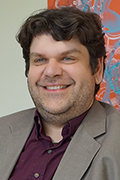 George Demiris is a Penn Integrates Knowledge University Professor with joint faculty appointments in the School of Nursing and in the department of biostatistics, epidemiology and informatics at PSOM. Dr. Demiris explores technology-based solutions for supporting patients and their families in various settings, including home and hospice care. He also focuses on designing and evaluating personal health systems that produce patient-generated data, including “smart home” solutions for aging and wearable devices.
George Demiris is a Penn Integrates Knowledge University Professor with joint faculty appointments in the School of Nursing and in the department of biostatistics, epidemiology and informatics at PSOM. Dr. Demiris explores technology-based solutions for supporting patients and their families in various settings, including home and hospice care. He also focuses on designing and evaluating personal health systems that produce patient-generated data, including “smart home” solutions for aging and wearable devices.
James H. Eberwine is the Elmer Holmes Bobst Professor of Systems Pharmacology and Translational Therapeutics at PSOM and co-director of the Penn Program in Single Cell Biology. Dr. Eberwine’s research focuses on the variation in function of single cells in complex cellular networks. This interest led him to develop, among other methodologies, single cell PCR, the aRNA amplification protocol and to coin the phrase “expression profile” to describe the relative abundances of RNAs, thus pioneering the field of single cell biology.
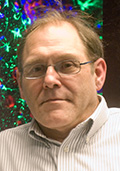 He is an inventor on over 170 patent applications and is an elected member of the National Academy of Inventors. He originated and has directed two long-running Cold Spring Harbor Summer Courses, Advanced Techniques in Neuroscience and Single Cell Analyses. Currently, he is a member of the NIH Multi-Council Working Group that oversees the US BRAIN Initiative and is co-chairing the Working Group that is writing the Neuroethics Roadmap for the BRAIN Initiative.
He is an inventor on over 170 patent applications and is an elected member of the National Academy of Inventors. He originated and has directed two long-running Cold Spring Harbor Summer Courses, Advanced Techniques in Neuroscience and Single Cell Analyses. Currently, he is a member of the NIH Multi-Council Working Group that oversees the US BRAIN Initiative and is co-chairing the Working Group that is writing the Neuroethics Roadmap for the BRAIN Initiative.
Stephan A. Grupp is a professor of pediatrics who practices at CHOP and CHOP’s chief of the cell therapy and transplant section and director of the Cancer Immunotherapy Program. His outstanding contribution to oncology is in the clinical development of CAR T cell therapy for relapsed and refractory acute lymphoblastic leukemia in children and young adults.
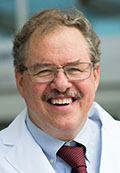 Dr. Grupp’s lab did many of the preclinical studies and developed the first pediatric trial and treated the first pediatric patient with CAR T cell therapy in 2012 (Almanac September 12, 2017).
Dr. Grupp’s lab did many of the preclinical studies and developed the first pediatric trial and treated the first pediatric patient with CAR T cell therapy in 2012 (Almanac September 12, 2017).
Guo-li Ming is the Perelman Professor of Neuroscience and member of Institute of Regenerative Medicine at Penn. The research in her laboratory centers on understanding the molecular mechanisms underlying neuronal development and its dysregulation using mouse systems and patient derived induced pluripotent stem cells. She has received a number of awards, including Charles E. Culpeper Scholarship in Medical Science in 2003, Alfred P. Sloan Research Fellow in 2005, Young Investigator award from Society for Neuroscience in 2012 and A. E. Bennett Research Award from Society of Biological Psychiatry in 2014.
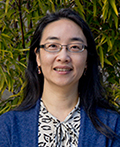 She is a member of Society for Neuroscience and fellow of the American College of Neuropsychopharmacology.
She is a member of Society for Neuroscience and fellow of the American College of Neuropsychopharmacology.
